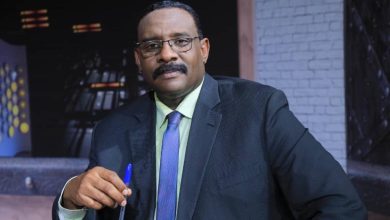Opinion
Well said, ill-intended Why would the US insist on a new peace platform for Sudan?

Mohammed Ahmed Adam
The Jeddah meeting between the Sudanese government delegation and the US Special Envoy to Sudan, Tom Perriello, concluded on Sunday without reaching an understanding on the negotiation agenda and observers. In a statement, the government of Sudan stated that the American delegation in the Jeddah negotiations did not provide justification for establishing a new platform, following the invitation extended by the United States to negotiate in Geneva on the 14th of this month.
Having already rejected the arrogant and non-diplomatic manner in which Antony Blinken, US Secretary of State spoke with President Al-Burhan last May on the need to participate in peace talks in Jeddah, which ended in the cancelation of the said round, time and time again Sudan as a sovereign State, won’t accept the United States predetermination and dictation of not only, the date and venue of negotiation, but also the negotiating parties, the negotiating agenda, the identity of the negotiating participants, and the identity of the negotiating observers, all that without tasking itself to consult with the Sudanese Government, on such important and sensitive issues.
The United States delegation in Jeddah failed to provide objective justifications for the establishment of a new platform in Geneva, taking into account, that the two parties at the Jeddah platform on May 11th, 2023, have already agreed on the humanitarian pathways and the delivery of aid across Sudan. The said agreement was signed with the guarantees of the two main sponsors; namely the United States and Saudi Arabia who were political and ethically responsible for pursuing and implementing the sail commitments.
In other words, Sudan is fully convinced that the serious implementation of the Jeddah Agreement remains the basis and cornerstone for achieving the desired peace in Sudan “if there is goodwill and seriousness.” Jeddah unequivocally obliged the RSF militia to take all feasible precautions to avoid and minimize civilian harm, to vacate urban centers, including civilian houses, and that civilians should not be used as human shields.
Evidently, such a binding obligations do not require new negotiations or new platforms. Likewise, the cessation of indiscriminate shelling of civilians whether in El-Fashir, Khartoum or elsewhere, was one of the most important provisions of the Jeddah Agreement. The release of WFP trucks and equally desisting from the disruption and looting of relief convoys, do not require new action or negotiations, as they constitute, binding obligations under international humanitarian law and human rights. Thereupon, adherence to Jeddah’s decisions was sufficient in essence, to limit and protect the Sudanese from all the horrors and the torments they experienced in the past months.
The US position and insistence on a new platform naturally raises a lot of curiosity, about the hidden agenda that makes the United States push so hard to accelerate the convening of a new platform for peace in Sudan at this particular time. Let’s review some of these possible motives, demarche and determinants.
Now at this time, everyone around the world is watching the fever of the next US election, and in the context of the multiple challenges hindering their march toward the White House, the outgoing US administration and Democrats are obviously and increasingly keen to get to the November election, without being loaded with the ethical and political guilt of Sudan’s war; in which the UAE for instance, is involved and proven to have supplied the terrorist RSF militia with lethal American arms, in explicit and flagrant violation of UN Security Council Resolution 1591.
In the same vein, The US administration perhaps wants to cut the way for the House and Senate Foreign Relations Committees, which called on President Joe Biden to consider imposing sanctions against the RSF militia, for its gross human rights violations in Sudan, within 120 days under the Global Magnitsky Act. Since the said deadline expires on August 20th, the U.S. Administration was in urgency to hold Geneva negotiations, namely, to pre-empt the deadline set by the said Committee, and thereby saving the neck of the notorious militia from the yoke of American sanctions.
The willy-nilly participation of the Sudanese government in Geneva implies bowing to a long-term truce under the umbrella of ceasing hostilities and the delivery of aid and assistance. In obvious corollary, giving time to rebel militias to catch their breath, after repeated military defeats on the ground, to pursue their already drawn hidden agenda of eliminating the Sudanese State, beginning with weakening the Sudanese army and ultimately dissolving it into the puppet rebel militias, besides, enabling a weightless and microscopic political force, to control the joints of the State, in the name of democracy and combating Islamic extremism, all despite and against the repressed will of the Sudanese people.
Again, one of the hidden goals of the US in adding the UAE to the Geneva talks is yet a desperate bid to whitewash the hands of its close ally, smeared with the blood of innocent Sudanese citizens, and accused of internationally-proven acts of aggression and destruction of the Sudan. Ironically, America is lobbying for the UAE – the main sponsor of the Sudan War – to be an observer in the Geneva negotiations, under a feeble justification that in fact, further implicates its ally that exonerating it, namely; transforming the UAE’s negative roles into positive ones.
The entire world knows that Sudan has accused the UAE of supporting the rebels with weapons and other sophisticated military hardware, mercenaries, and media support. Sudan has passed the stage of accusing UAE, by having filed a formal complaint against it, before the UN Security Council (the complaint disrupted by Britain and America itself) for launching the crime of aggression against the Sudan. Unmistakably, the UAE can’t act as the defendant and the judge at the same.
By insisting on a new negotiating platform, the United States cunningly sets up a trap for the Government of Sudan; In accordance with the jurisprudence of the negotiations, the following agreement supersedes the earlier. Thus, for the RSF militia, new platform and a new agreement does not only efface and obliterate previous commitments (zero-commitments) but also produce new gains, taking into account the militia’s relentless endeavor to expand geographically in central Sudan, besides its ongoing suicidal offensives to occupy El- Fashir, as a liberated area. In Geneva, the US and its allies will be more than ready to adopt the so-called liberated areas, as legitimate war gains, pending the final political solution, which simply means bringing the country into the Libyan scenario.
Agreements are made to be fulfilled, the militia signed Jeddah’s declaration in front of international witnesses and did not literally implement it. What is the point of signing another agreement? Who guarantees that the militia will carry it out if we exempt it from what it has already committed itself to? Instead of exerting pressure on the militia to implement its commitments, the militia’s regional and international backers are striving to seek flimsy and illusory excuses. How do we ensure that it will evacuate citizens’ homes after its soldiers burned down many property records, among the State documents and installations that were burned and destroyed in a systematic and deliberate manner?
Specifically, why has the United States Government and its European partners, failed in the first place, to compel the militia to implement Jeddah’s outputs throughout the previous period? Why the US chose to sit still whilst the militia openly and barefacedly perpetrates the most egregious war crimes and crimes against humanity against the unarmed Sudanese people. Or is it an expression of American policy towards the Sudan and the region, but by other means?
Achieving peace requires serious mediators who meet the conditions of impartiality, goodwill, and a firm desire to achieve a just peace that meets the aspirations and desires of the people of Sudan, respects the sovereignty and independence of Sudan, and protects the Sudanese from the brutality of criminal militias, last but not the least from the blurry regional and international positions It seems obvious that these conditions are not yet available in the US broker.



